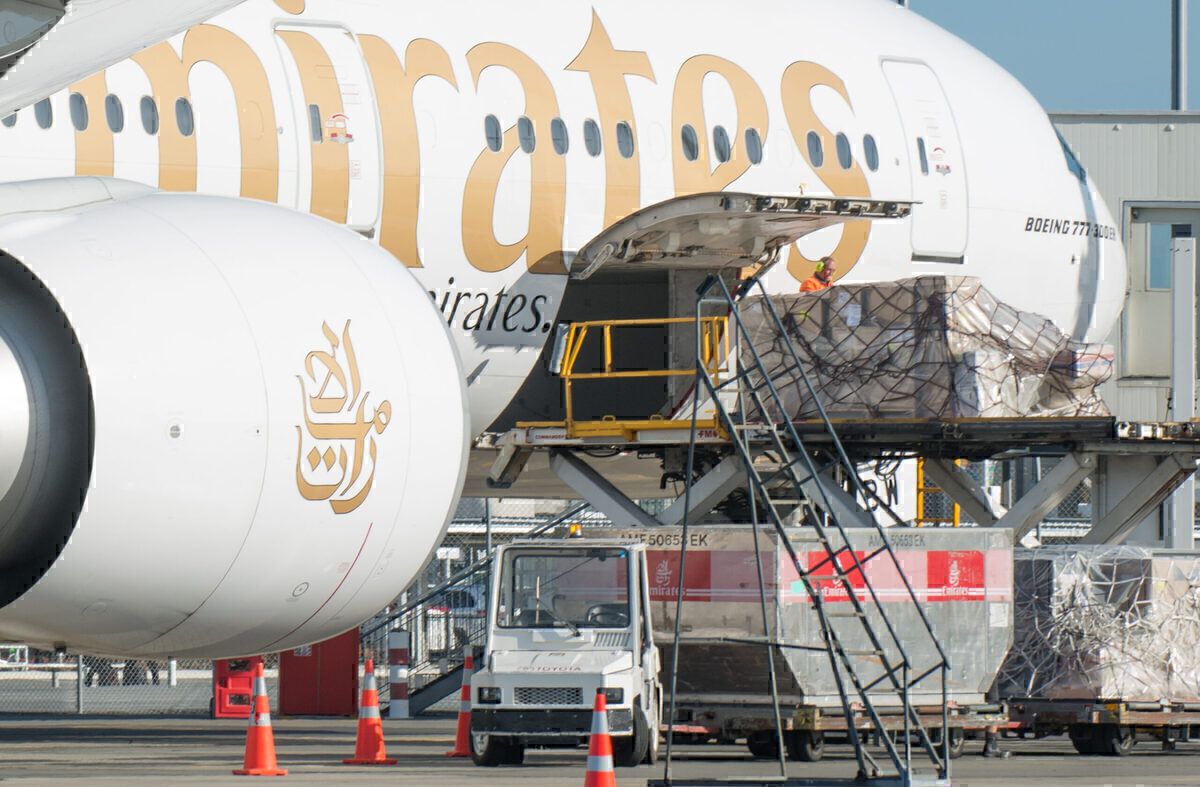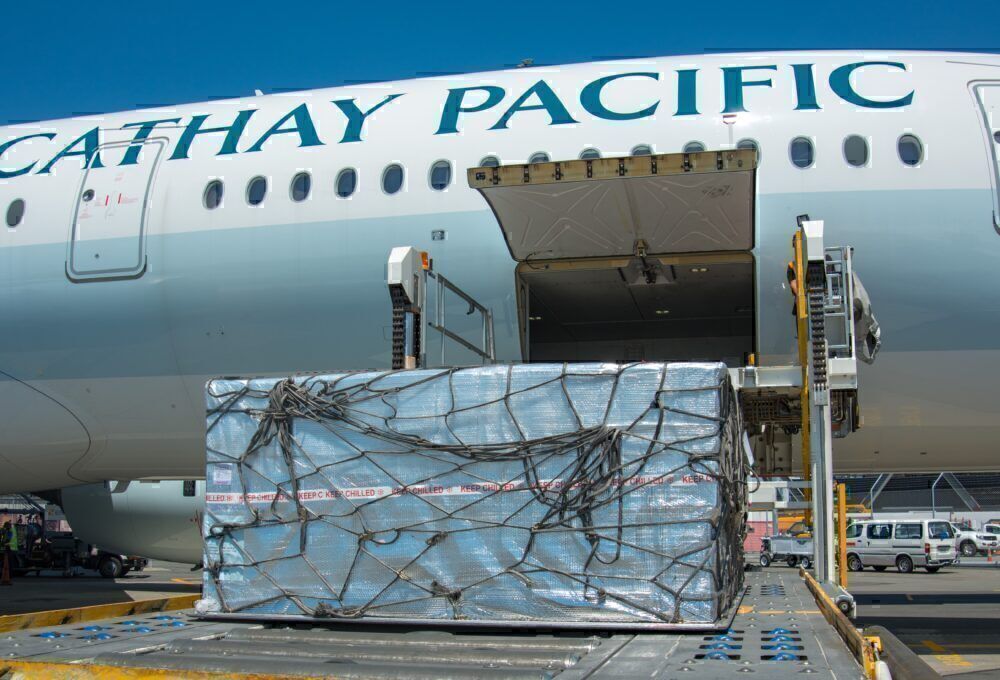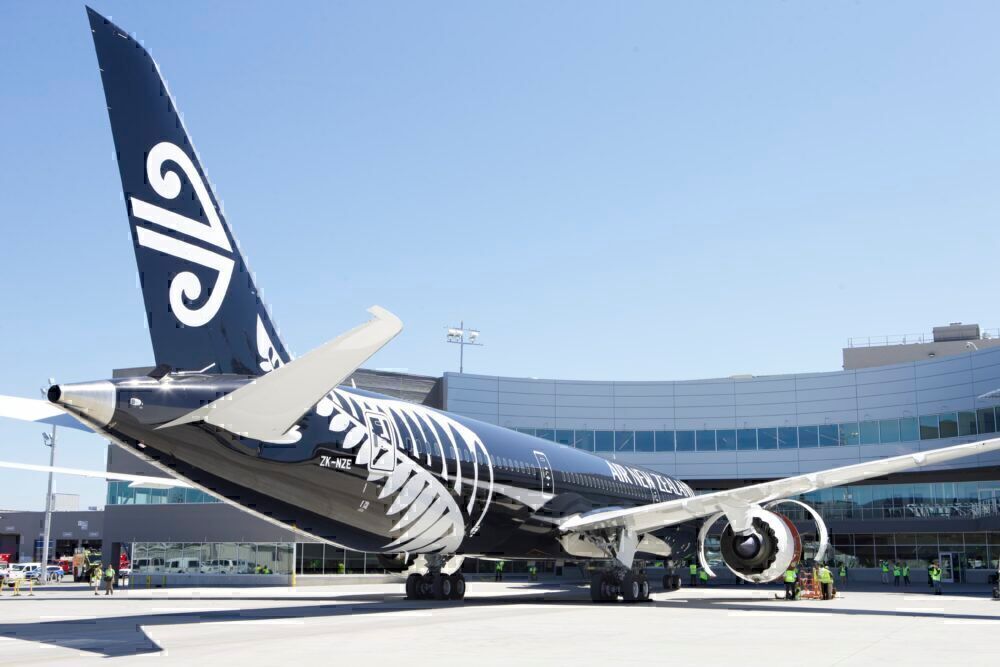Christchurch Airport is benefiting both from international demand for produce from New Zealand's South Island and a government scheme providing funding for airlines to operate freight flights. Over the southern hemisphere summer, the South Island’s peak export season, up to 30 international flights a week will fly out from Christchurch Airport. Among the airlines in the lineup are Emirates, Air New Zealand, China Airlines, Singapore Airlines, Qantas, and Cathay Pacific.
A tough year for New Zealand's exporters
New Zealand farmers normally do a brisk business exporting high-value premium fresh produce around the world. This includes lamb, beef, crayfish, cherries, salmon, halal meat, and fruit. But the lack of international airlines flying out from Christchurch this year handicapped that.
Before the borders closed, more than 90% of air freight was carried in the holds of passenger aircraft," says Justin Watson, Christchurch Airport's Chief Aeronautical and Commercial Officer.
“When passenger aircraft stopped, the opportunity to get the perishable produce to the markets did as well."
Airfreight demand out of New Zealand has declined 16% this year. But available capacity has fallen by 25%.
Stay informed: Sign up for our daily aviation news digest.
Government scheme subsidizes airlines to run extra services
In response, earlier this year, the New Zealand Government set up the International Air Freight Capacity Scheme (IAFC). The scheme subsidizes airlines to operate a regular air service schedule to and from New Zealand. It also helps to maintain critical airfreight capacity.
According to the New Zealand Government, market rates for airfreight have increased and will stay above pre-COVID-19 levels for the medium term.
"Before COVID-19, paying passengers essentially subsidized freight and a freight-only operation now needs to carry most of the costs, at least until passengers return, or the market adapts in other ways," says the New Zealand's Ministry of Transport website.
Air New Zealand a big winner
The New Zealand Government recently extended the IAFC scheme until the end of March 2021. A key beneficiary is Air New Zealand who welcomed the extension.
"It's great to see the extension of the IAFC scheme as it provides much-needed support and stability to New Zealand importers and exporters," said Air New Zealand's General Manager of Cargo, Anna Palairet, last week.
"Our flying schedule remains largely the same, and it's exciting to see new services to Guangzhou and Perth, as well as some enhancements to the ongoing schedule to improve the connectivity for South Island Exporters.
"We'll be sending more than 1,000 tonnes of lamb up to the UK in time for Christmas and more than 3,500 tonnes of stone fruit around the globe, with a majority moving into China for the Chinese New Year."
Since IAFC began, Air New Zealand has operated over 1,100 flights out of New Zealand, primarily from Auckland and Christchurch. The airline has carried over 39,000 tonnes of freight in and out of New Zealand. Over the southern hemisphere summer, Air New Zealand will operate approximately 55 international flights per week.
There are some interesting flights set to run from Christchurch. Justin Watson says;
"Air New Zealand’s new 787s have this week begun operating non-stop between Christchurch and Los Angeles, and to parts of Asia, with a commitment to add more flights if the need is there.”
Justin Watson notes that while it's handy for New Zealand's exporters to have access to extra capacity, especially for time-sensitive perishable freight, the traffic isn't all one way. Coming into New Zealand are essential imports, including medical parts, medicines, artificial heart valves, and componentry.



